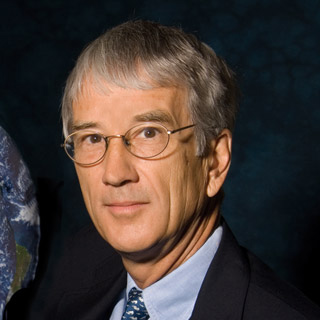Yohe Seeks Input from Wesleyan Community on Third National Climate Assessment

“Climate Change, once considered an issue for a distant future, has moved firmly into the present.” This is the message in the draft version of the Third National Climate Assessment, which was released on Jan. 11.
Gary Yohe, the Huffington Foundation Professor of Economics and Environmental Studies, is vice chair of the National Climate Assessment and Development Advisory Committee (NCADAC), a 60-member committee that includes representatives from academia, state and local governments, non-governmental organizations, business and industry, and others, and the committee that issued this draft.
Since this is a “review draft,” Yohe encouraged the Wesleyan community and their friends (along with their enemies) to read the draft report, or any sections of the 1,000 page long document that are of interest. The draft is available online, and anyone can submit review comments at review.globalchange.gov by April 12.
Yohe said the committee is seeking comments from individuals, non-governmental organizations, and those working in government at all levels. He said author teams would respond publically, if not personally, to every comment received. The final draft of the National Climate Assessment is due to be released in 2014; the revision process will occupy most of the summer and fall of next year.
“It is a complicated process,” Yohe said. The draft report is written by 240 different authors, and was based on the best available climate science as of the end of the summer of 2012, gathered from experts around the country in the public and private sectors, from stakeholders in all sectors of the economy, and from federal agencies.
The draft concludes “that the evidence for a changing climate has strengthened considerably since the last National Climate Assessment report, written in 2009.”
According to the draft report, the average temperature in the U.S. has risen by about 1.5 degrees Fahrenheit since 1895, with more than 80 percent of this warming occurring since 1980. Moreover, this past decade was the hottest on record in the U.S., and 2012 was the warmest year on record by about one degree Fahrenheit. This warming trend is expected to continue, with average temperatures projected to rise between 2 and 4 degrees Fahrenheit in most areas over the next few decades.
An introductory Letter to the American People, signed by Yohe as a co-chair and his colleagues on the committee, states that, “Americans are noticing changes all around them. Summers are longer and hotter, and periods of extreme heat last longer than any living American has ever experienced. Winters are generally shorter and warmer. Rains come in heavier downpours, though in many regions there are longer dry spells in between.” These climatic changes have resulted in more frequent flooding in coastal cities and inland cities near large rivers; more wildfires that last longer, threaten more homes, and burn more acreage; and erosion of sea ice in Alaska, threatening to make relocation a necessity for some communities.
“The draft shows how observed climatic changes are already having wide-ranging impacts in every region of our country and most sectors of our economy. Some of these changes can be beneficial over the near term, but most have already proven to be detrimental,” Yohe remarked.

